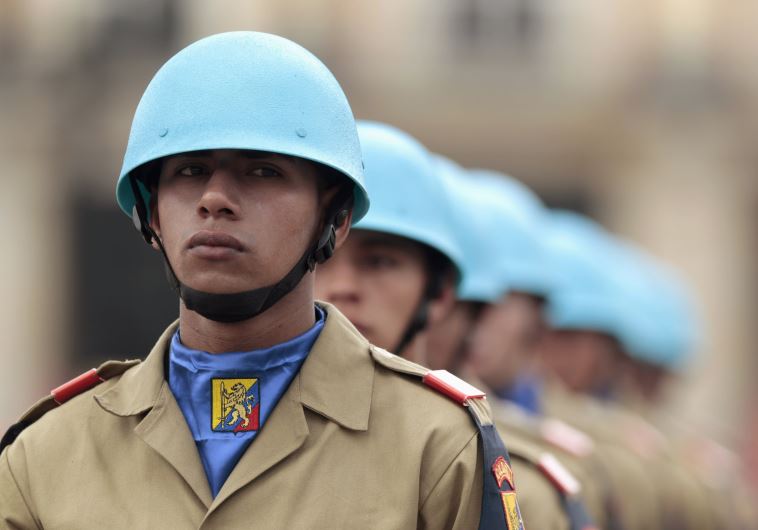Colombians arrive in Israel to learn how to clear land mines
One official characterized Israeli efforts in helping the mine-clearing efforts in Colombia as a “humanitarian civilian” action.
 Soldiers from the Colombian Multinational Forces and Observers battalion to SinaiUpdated:
Soldiers from the Colombian Multinational Forces and Observers battalion to SinaiUpdated: